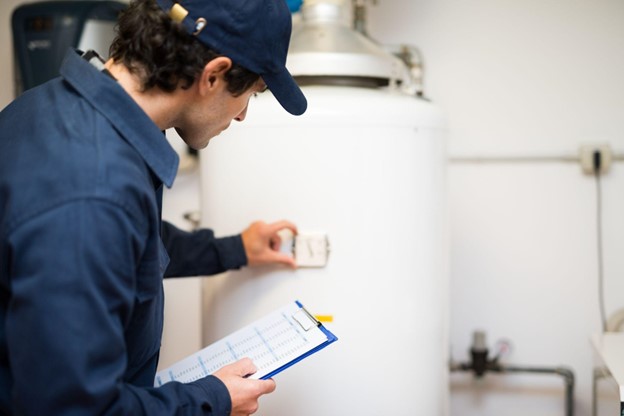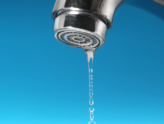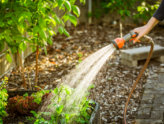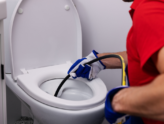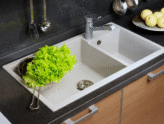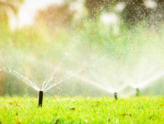How Come My Water Heater Is Overheating?
Water heaters are important features in our homes, and when something goes wrong with them, such as our water overheating, it can lead to significant stress levels.
Questions about what to do, where you can go for help and how much it will cost can leave you incredibly confused, especially if you don’t know or understand the source of the issue.
Although this can be stressful, Caldwell Plumbing is here to help. Caldwell Plumbing is the service for you if you’re looking for amazing plumbing in Pickering. We’re committed to helping you get your water heater under control, so we’ve compiled this guide to the most common sources of water temperature issues, as well as great water heater repair services.
The Reasons Why Your Water Heater Is Overheating
The reasons why your water heater is overheating can depend on the type of water heater you have. There are two types of water heaters: they are gas and electric water heaters. Gas water heaters use burners within the tank to heat the water.
The burner will then heat the water in the tank to the required temperature set on the thermostat. Once the water has reached the right temperature, the burner shuts off and waits for the water to cool down again. These heaters use the combustion of natural or liquid propane gas and ignite with the help of a pilot light.
Electric water heaters use an electric heating element inside the water. This heating element switches on when the water temperature inside the tank falls below the set temperature on the thermostat. Take a look below for more information on why your water heater may be overheating.
One Of The Heating Elements Are Faulty
Electric water heaters use water heater elements and produce heat using a probe. This probe links to the thermostat and turns on and off depending on the water temperature and the user’s settings.
If the heating element is faulty and doesn’t connect to the thermostat, this will stay on and continue heating the water beyond the user’s requirements. In some cases, the heating element can burn itself out due to electrical faults or a build-up of minerals. This will cause the element to stop working altogether and is the likely consequence of constant water heating.
The Thermostat Is Broken
Broken thermostats are one of the most common causes of water running much hotter than you would deem reasonable. A thermostat controls the temperature regulation of your water heater by monitoring your water temperature.
It will then shut off or turn off if it notices that the water temperature gets too high or low. Usually, a broken thermostat that results in hot water temperatures rising will be down to a broken safety shut-off feature; this will cause the heating elements to stay on and continue heating your water well above your set temperatures.
Thankfully, thermostats are easily replaceable, so you won’t need to worry about forking out a small fortune to replace this.
There Are Sediments Inside The Heater That Are Affecting The Heating Elements
If you live in a hard water area, you’re at a higher risk of experiencing sediment buildup. High mineral content in your water that isn’t filtered out can lead to serious water heater problems.
Sediments in your water will sink to the bottom of your water heater or settle around your heating elements if you have an electric boiler.
Because of these sediments, your water won’t heat evenly throughout the tank, leading to cold spots in some areas and hot spots in others; because of this, the thermostat will display a reading that the constant temperature is too low and will continue to heat the water.
Additionally, sediments will coat your heating elements, resulting in your elements having to work much harder to heat the tank. If you notice that your water is suddenly scalding hot, your elements have likely overheated. This is a serious concern as it can lead to permanent damage to your heating elements.
The Pressure Relief Valve Is Stuck
Pressure valves are an important part of a functioning water heater. These valves ensure that steam can easily escape from inside the water tank once your heating elements switch on.
This stops your water from overheating and your water heater from shutting off due to safety problems. Sometimes, the pressure valve can get stuck, causing steam to collect and continue heating your water. This is a serious safety hazard that needs to be addressed immediately.
One of the telltale signs of a stuck pressure valve is hearing the water inside your tank bubbling or boiling. If this is the case, immediately shut down the power to your boiler and contact a plumber in Pickering to prevent your water heater from exploding from the pressure!
The Temperature Is Set Incorrectly
An incorrect temperature setting is one of the simplest causes of water running far hotter than you would like. Water heaters usually have dials on the front that give you full control over the water temperature.
Usually, temperatures around 90 to 100 degrees Fahrenheit will suit most homes, but this may be too hot for others. If you notice that your water heater is set too high for your liking, you can simply adjust the dial.
Electric water heaters typically have a lower and upper thermostat that will need to be the same temperature in order to heat your water to the ideal temperature.
You can adjust this by removing the access covers on the thermostat and checking that the thermostat is placed properly on the water heater. You can then adjust the setting with a small screwdriver until you hear a click on the lowest setting.
If the temperature on your gas water heater is too high, you’ll need to inspect the valve assembly and locate the dial. Try adjusting the dial to the lowest setting. If this doesn’t work, this assembly should be replaced.
What Can I Do To Prevent My Water Heater From Overheating?
One of the best ways to avoid your water heater from overheating and producing too much hot water is through proper tank maintenance. Here are a few ways you can properly maintain your tank:
Flush Your Tank
Flushing your tank is part of routine water heater maintenance. It’s a great way to keep sediments from settling in your tank and damaging your heating elements. This will also remove things like dirt that can lead to more build-up around your heating elements or at the bottom of your tank. Flushing your tank will also help you spot the early signs of any issues, allowing you to contact a plumber in Pickering and solve the issue before it becomes a bigger problem!
Remove Sediment Build-Up
Removing sediment build-up is the best way to stop your heating elements from burning out or overworking. You can do this by installing a water softener as a preventative measure and by conducting regular tank flushes. Doing this ensures that your heating elements will heat more evenly throughout the tank, leading to more consistent temperatures.
Get Your Thermostat Fixed
As we’ve mentioned, faulty thermostats are the most common cause of water running too hot than you would like. However, they’re also the easiest to fix. All you’ll need to do is replace your thermostat. It’s still worth calling a professional plumbing service in Pickering to do this to ensure you fit this correctly against your water heater and connect them to the correct terminals.
Call Caldwell Plumbing If You Are Looking To Get Your Water Heater Fixed!
We know trying to find a plumber in Pickering can be difficult, but Caldwell Plumbing is here to help. If you’re looking for professional plumbing in Pickering and the Durham region to fix an overheating water heater, contact Caldwell Plumbing today!
We’re proud to offer all customers our comprehensive plumbing services, including water heater repairs. Contact us today to find out how we can help you!

